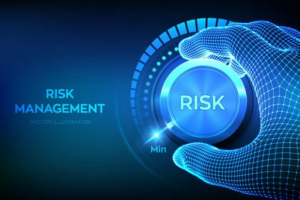The Promise and Challenge of Blockchain

Blockchain is a transformative technology that holds significant promise to disrupt and improve many industries. However, blockchain is still an emerging technology with many limitations and challenges that must be addressed before gaining mainstream adoption. The future of blockchain will depend on surmounting technological limitations, reducing implementation challenges, and navigating regulatory issues. With prudent development and governance, blockchain could revolutionize systems and services in amazing ways. But we must address many challenges to unlock and safeguard its full potential.
Blockchain promises to disrupt various sectors ranging from finance and banking to healthcare and education. In finance, blockchain enables cryptocurrency transactions as well as faster, more transparent global payments. In healthcare, blockchain provides a secure digital infrastructure for managing patient data and medical records. In education, blockchain offers a platform to verify skills and credentials, and enable lifelong learning pathways. However, most existing blockchain applications remain limited in scale and scope due to technological constraints around performance, privacy, and interoperability. Industries will not adopt blockchain widely until platforms can resolve these issues at scale.
While blockchain holds opportunities to cut costs and increase inclusion, implementation faces challenges. Integrating blockchain solutions often proves complex, expensive, and time-consuming. A shortage of blockchain engineers and experts also hinders many companies from exploring and deploying the technology. Moreover, uncertain regulation poses risks to innovators while security breaches undermine trust in some blockchain applications like cryptocurrency exchanges. Addressing these combined challenges is necessary to accelerate innovation and adoption of blockchain.
The decentralized and distributed nature of blockchain also brings both advantages and disadvantages that require consideration. Although blockchain reduces the need for intermediaries, it relies on network consensus and resource-intensive algorithms that become unwieldy at large volumes. If designed well, blockchain could decentralize control and democratize systems in valuable ways. But it may also introduce chaos without governance mechanisms. An open blockchain network must align incentives, prevent misuse, and scale securely to deliver on its revolutionary potential.
Overall, blockchain is a promising technology, but its future depends addressing significant challenges and limitations before transforming society for the better. With prudent management and oversight, blockchain could produce astounding progress that improves lives and uplifts humanity. But we must guide its development responsibly by grappling with hard questions around ethics and governance. If we’re able to collaborate and make the right choices today, blockchain may forge a future of shared progress tomorrow. Still, technology alone will not change the world until we build systems and services designed not just to disrupt but to enrich and empower. The future remains in our hands and hearts – open or not.






